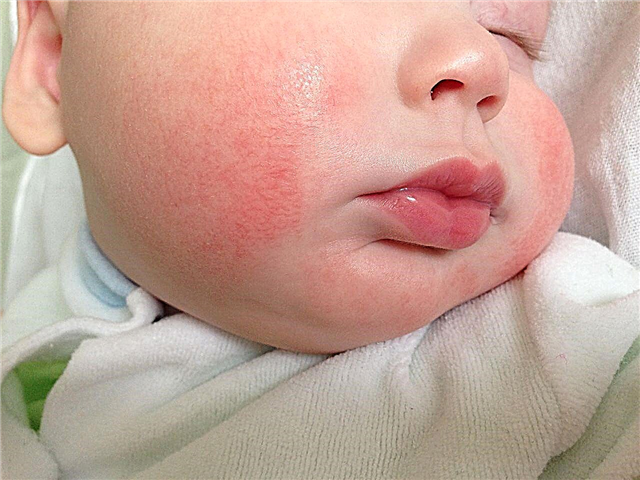Medical care for children in the 80s and 90s was clearly organized. On the second day after being discharged from the maternity hospital, the mother and child were visited by a visiting nurse who advised how to feed, swaddle, and bathe the baby. Literally from birth, the child was registered in the children's clinic. Every month, on the day of a healthy child, the baby had to be taken to the local doctor to monitor the development and for vaccinations. And today, many Soviet traditions associated with the work of pediatricians have survived. But some of the advice from the 80s and 90s is hopelessly outdated: the views on childcare have changed somewhat. Let us take the liberty to name the recommendations of children's doctors from the last century, which should not be followed by modern parents.

Diapers, undershirts
How should a newborn be dressed? The order was as follows: thin undershirt, warm undershirt, thin cap, warm cap, gauze diaper, thin diaper, warm diaper and another blanket on top.
The child was lying "at attention", could not move either arms or legs. It was believed that this way he would be calmer, otherwise he might be afraid of his own hands and wake up and scream.
It was supposed to rigidly fix the legs so that they were not crooked. It was recommended to wear sliders only for months 4-5. The process of swaddling turned into a torment for the baby, and only women of the older generation represent how much washing was done, especially since they had to wash everything on their hands with household or baby soap. About any automatic machines then and did not hear. Several decades have passed - and everything has changed: gauze diapers have been replaced by modern diapers (diapers is a common name for a diaper), and diapers with rompers from birth.
Bunker bed and sleeping on the stomach
To provide the baby with a comfortable sleep in a warm and special microclimate, it was recommended to sheathe the crib with soft sides, some still managed to make a kind of canopy - to cover the top of the crib with a sheet. Only one thing was not taken into account: plump sides, soft pads expose the child to the risk of suffocation if he accidentally presses his face against them.
Another advice threatened no less danger - to put the baby to sleep on his stomach to improve digestion (prevention of colic) and strengthen the neck muscles.
Children need to sleep on a hard mattress, on an orthopedic pillow, and there should be free air for the child to breathe.
Feed on schedule
Already in the maternity hospital, the mothers were brought in their babies for feeding on a schedule: at 6, 9, 12, 15, 18, 21, 24 hours. The same schedule was recommended to be followed at home. If the child woke up earlier and cries, you need to wait for the allotted time, but for now give him some water or a dummy. It was believed that adherence to the regimen promoted the arrival of milk at a certain time, and random feeding led to a decrease in the amount of breast milk.
First feeding
It was recommended to start feeding babies from three months. They started with apple juice (a teaspoon and then gradually increasing), applesauce and puree from other fruits, vegetable puree. Then it was proposed to give cottage cheese, cereals boiled in milk, soups in meat broth, mashed meat.

As a result of such an early complementary feeding, children experienced difficulties with digestion, allergic reactions, and respiratory problems.
At present, it is not recommended to start complementary feeding earlier than six months. The scheme for introducing complementary foods has also changed: first you need to give vegetables that do not cause allergies - zucchini, cauliflower, broccoli, and then gluten-free porridge - buckwheat, corn, rice. Milk porridge (half diluted with water) is gradually given to a child from 8-9 months.
We all eat with bread
Bread has always been held in high esteem. From an early age, the child was given a lot of flour: buns, cookies, muffins, pies. Some children managed to eat not only soup with bread, but also pasta and porridge. More carbohydrates, less fat - this was the motto of pediatricians. A fat child is a healthy child.
Weight gain was very strictly monitored, and if the baby lagged behind the norm, it was proposed to strengthen his nutrition.
Let us recall the film "Welcome, or No Unauthorized Entry", in which in the pioneer camp every week the total weight gain was displayed by detachments, and when in one detachment the indicators turned out to be in the red, it was a disaster for the camp director.
Not eggs
There were also prohibited foods that were not recommended for children in any way. Eggs were such a product. It was believed that they cause a terrible allergy, diathesis, and therefore they should be excluded from the children's diet. Yes, eggs can cause an allergic reaction, but not all children. They contain a large amount of vitamins, protein, giving them to children is very useful from an early age.
Vaccinations are required
Vaccination was carried out strictly according to the schedule. It was impossible to refuse vaccinations. There was no information about the benefits or dangers of childhood vaccination, the question of whether or not to get vaccinated was not even discussed. There were no alternative vaccines, they were vaccinated only with those drugs that were available in the clinic. The child was not admitted to any child care institution without a vaccination certificate.
And if the child is sick
Treatment of childhood diseases at that time was very different from modern methods. It was believed that at the slightest increase in temperature, it should be brought down. The children were given pills, put candles, which sharply reduce the temperature. The body was not allowed to fight viruses. Now, at temperatures up to 38 °, it is not recommended to use antipyretic drugs, since viruses die at high temperatures.
Antibiotics are universal medicines
In the case of a child's illness with acute respiratory viral infections or flu, pediatricians went to two extremes. Some did not offer any medicine at all, only herbs: chamomile, St. John's wort, plantain. Others immediately prescribed antibiotics, which, as it became known now, have little effect on viruses, but the intestinal microflora can cause serious harm. Therefore, antibiotic medications are prescribed today only when urgently needed.
Sweet medicine

At the slightest sign of coughing, it was recommended to drink phlegm-thinning syrups. They facilitated expectoration, softened the cough, but one circumstance was not taken into account: children under 3 years of age should be given these drugs with caution, since the child may choke on his own phlegm.
Sits earlier - goes earlier
I wanted to speed up the child's development. For this, various devices were invented. At the dawn of perestroika, unprecedented children's jumpers, runners, slings, backpacks for carrying, "kangaroos" appeared. They were perceived as facilitating the process of sitting and moving the baby "helpers". Only later did it become clear that it was very harmful for a child to start sitting, getting up and walking until the spine was strong. Everything is good on time, and there is no need to stimulate these processes.
The sun is the best friend
The sun gives life to all living things. In children, under the influence of sunlight, vitamin D is produced, which is extremely important for the formation of bone tissue, a kind of prevention against rickets. But ultraviolet radiation in today's environmental conditions is extremely harmful to the skin of a child: burns and neoplasms may appear. It is not recommended for a child or an adult to stay in the scorching sun for a long time, and while sunbathing, you need to use a special cream applied to the skin surface. Few people knew about such creams in Soviet times.
We want to see our babies healthy and happy. Having no experience in caring for a child, we often turn for help from the older generation - mothers and grandmothers who raised their children in Soviet times, following the instructions of pediatricians. But it should be borne in mind that not all of their advice is relevant, some are hopelessly outdated.
- How children were raised in the USSR: 10 basic rules
- Baby care yesterday and today
- Is it true that raising children in the USSR was easier?



